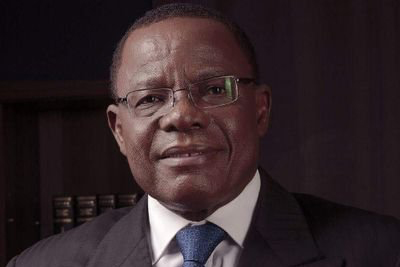
Feb 5, 2019 | News
The ICJ expressed its grave concern today at the arrest, detention and criminal charges brought against Maurice Kamto, leader of the opposition party Cameroon Renaissance Movement (CRM), and other CRM activists.
The ICJ called for the immediate release of Maurice Kamto, who is also former Commissioner of the ICJ.
The arrest of Maurice Kamto, on 28 January, came following the violent breakup by the security forces of opposition demonstrations on 26 January.
Maurice Kamto is said to face charges of sedition, insurrection and inciting violence.
There are reports that he and other arrested persons have begun a hunger strike.
The ICJ is concerned that Maurice Kamto and other opposition leaders may be prosecuted for the exercise of rights protected under international law, including the rights to freedom of expression, association, assembly and political participation
The ICJ called on the Cameroon authorities to fully safeguard the human rights of Maurice Kamto and the other detainees, including the rights to liberty, fair trial, and freedom from ill-treatment, guaranteed under Cameroonian and international law.
Contact:
Arnold Tsunga, ICJ Africa Director; t: +27716405926, or +254 746 608 859 ; e: arnold.tsunga(a)icj.org
Solomon Ebobrah, Senior Legal Adviser, ICJ Africa Regional Programme, t: +234 8034927549 ; e: solomon.ebobrah(a)icj.org
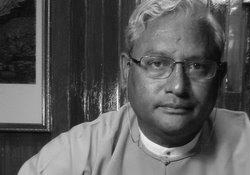
Jan 29, 2019 | News
On the second anniversary of the killing of prominent lawyer U Ko Ni, in public view at Yangon International Airport, the ICJ repeats its calls for a thorough and impartial investigation with a view to establish the facts, to deliver justice and to deter the repetition of similar crimes.
“This brazen killing of a prominent democracy advocate demands a rigorous State response to show this type of crime will be fully punished,” said Frederick Rawski, the ICJ’s Director for Asia and the Pacific.
Despite an official investigation and reports of more than 100 court hearings, nobody has been held accountable for U Ko Ni’s death – criminally or otherwise – and the circumstances have not yet been satisfactorily explained.
“Myanmar simply cannot satisfy its international law obligations without conducting an impartial and independent investigation that is free of military influence. Such an investigation is a pre-requisite for conducting an effective prosecution in a fair trial setting,” added Rawski.
U Ko Ni was well known as a vocal advocate for human rights and democratic reform in Myanmar. As an adviser to the National Legal of Democracy party, he was involved in creating the position of State Counselor, which formalized a leadership role for Daw Aung San Suu Kyi, despite a constitutional provision barring her from the Presidency.
At the time of his death, it is understood that U Ko Ni was working on proposals to replace Myanmar’s 2008 Constitution, the source of law underpinning military power.
“A credible justice process is required not only for U Ko Ni and his family, but to demonstrate the State will protect the right to life of all people including democracy advocates,” said Sean Bain, legal adviser for the ICJ.
“A crime of this nature stifles participation in the democratic process and so an effective justice process is imperative to deter its repetition,” Bain added.
Myanmar has a particular obligation to ensure that lawyers and others acting as human rights defenders are protected in carrying out their work.
Any justice process must be timely, effective and shed light on the facts.
The investigation into U Ko Ni’s killing has been beset by obstacles, including the unknown whereabouts of a primary suspect, the incorrect identification of a deceased individual as a suspect and the arrest of a person with the same name, and reported military involvement in the police investigation. Lines of inquiry related to the political motivations for the killing, particularly considering the military links of many suspects, do not appear to have been pursued satisfactorily, nor impartially, given military involvement in the investigation.
Criminal proceedings in Yangon’s Northern District Court, and related proceedings in the Yangon High Court, have been sluggish. Observing lawyers and individuals including from the ICJ have noted multiple instances of admission into evidence of testimony that appears to be irrelevant, failures of key witnesses to appear, and the long drawn out process of court proceedings whereby weeklong delays are common while continuances over successive days are rare.
These issues are emblematic of challenges in Myanmar’s justice system previously identified by the ICJ in which police, prosecutors and courts generally lack the independence and or will to effectively administer justice, particularly in politically sensitive cases.
“Two years is an incredibly long time to get to the position we are in now, and in our experience this highlights broader problems with the administration of justice in Myanmar,” added Bain.
Contact
Frederick Rawski, ICJ Asia Pacific Region Director, e: frederick.rawski(a)icj.org
Sean Bain, ICJ Legal Adviser, e: sean.bain(a)icj.org
Download:
Myanmar-Ko Ni Statement-News-web stories-2019-ENG (full story with background information, PDF)
Myanmar-Ko Ni Statement-News-web stories-2019-BUR (full text in Burmese, PDF)
Read also:
Myanmar: reverse laws and practices that perpetuate military impunity – new ICJ report
Killing of lawyer U Ko Ni must be promptly and impartially investigated
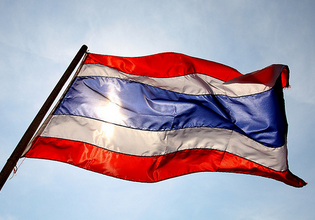
Jan 25, 2019 | Advocacy, Legal submissions
Today, the ICJ and Lawyers Rights Watch Canada (LRWC) submitted a joint amicus curiae in criminal defamation proceedings against human rights defenders Nan Win and Sutharee Wannasiri for bringing to light alleged labor rights violations at Thammakaset Company Limited.
The defamation charges relate to a 107-second film, produced by the non-governmental organization Fortify Rights, which documents previous defamation complaints brought by Thammakaset against 14 of its former migrant workers from Myanmar.
Nan Win was one of the migrant workers featured in the film. Sutharee Wannasiri, former Human Rights Specialist with Fortify Rights, was charged in connection with making three Twitter posts relating to the film.
The brief aims to clarify the nature and scope of Thailand’s international legal obligations relating to the right to freedom of expression and points out that the imposition of harsh penalties such as imprisonment or large fines on a human rights defender risks having a ‘chilling effect’ on the exercise of freedom of expression, which Thailand is bound to protect pursuant to its international legal obligations.
The preliminary examinations of Nan Win and Sutharee Wannasiri will begin on 4 February and 11 March 2019, respectively.
During the preliminary examination hearing, is the Court will consider the case before it to determine if it is a prima facie case.
The preliminary examination hearing is a mandatory proceeding in matters involving prosecution claims brought by private individuals or entities, such as in the case of Nan Win and Sutharee Wannasiri.
If the preliminary examination finds that the cases are prima facie, the court will admit to trial only the charges relating to the counts deemed prima facie.
If the court finds no prima facie case, it can rule that the charges be dismissed.
Read also:
Thailand: Drop defamation complaints against human rights defenders Nan Win and Sutharee Wannasiri (3 December 2018)
Download:
Thailand-Nan Win Kratik_Amicus-Advocacy-legal submission-2019-ENG (full amicus in PDF, English)
Thailand-Nan Win Kratik_Amicus-Advocacy-legal submission-2019-THA (full amicus in PDF, Thai)
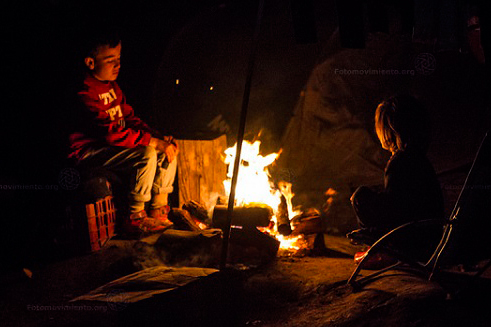
Jan 18, 2019 | News
A legal challenge to the violations of migrant children’s social rights on mainland Greece and its North Eastern Aegean islands has been lodged by the ICJ and the European Council on Refugees and Exiles (ECRE) before a European body specialized in the protection of social rights at the European level.
The legal action, taken in the form of a collective complaint to the European Committee on Social Rights, catalogues the numerous instances of Greece failing its child care and protection obligations towards migrant children by leaving them in conditions of squalor, insecurity and violence.
The complaint to the Committee, an impartial body which oversees the protection of certain economic and social rights by assessing the conformity of domestic law and practice with the European Social Charter, has been supported by the Greek Council for Refugees and includes reports from Médecins Sans Frontières on health and living conditions of migrant children in Lesvos.
Amongst the most blatant infringements of migrant children’s rights described in the complaint has been the systematic and ongoing absence of sufficient accommodation facilities and the lack of an effective guardianship system for unaccompanied children in Greece, exposing them to significant protection risks, including homelessness and placement in detention.
Such severe deficiencies in basic care facilities has led to dire living conditions which deprive children of their most fundamental rights.
Overcrowded, insalubrious and dangerous conditions prevail most obviously on the North Eastern Aegean islands where the standards of human dignity and special protection accorded to children by virtue of their particular status under international human rights law are repeatedly violated.
The complaint notes that the dearth in basic care facilities for migrants in Greece extends to medical services, particularly on the islands, which has a serious knock-on effect on hygiene, sanitation and substantive physical and mental health care and treatment for children.
In addition, mixed living arrangements, limited, if not non-existent security patrols and deficient guardianship systems have led to numerous reports of sexual abuse, violent assaults, harassment and humiliation of migrant children in camps on the Greek islands.
The consequences of the conditions listed in the complaint have been, in certain locations, children self-harming and even attempting suicide.
“Greece’s deference to the violations being committed against migrant children on its territory has gone on for far too long without any foreseeable improvement on the horizon.
Transfers of migrant children and vulnerable persons from the islands to the mainland are paralysed by a shortage of places on the mainland and administrative encumbrances.
All the while, children are left to languish in a forgotten environment of impoverishment and destitution.
This legal challenge to Greece’s indifference will hopefully pave the way for institutional condemnation and for substantive change in the protection of society’s most vulnerable” says Amanda Taylor, Senior EDAL Coordinator at the European Council on Refugees and Exiles.
“As signatory of the European Social Charter, Greece is under an international obligation to ensure that migrant children in its jurisdiction have access to basic economic and social rights. Particularly in the case of migrant children, who find themselves in a vulnerable situation, remaining even for a short period of time in such terrible conditions as currently exist in Greece, is likely to result in irreparable harm and injury and have a detrimental and non-reversible impact on their development,” said Karolína Babická, Legal Adviser for Europe and Central Asia with the ICJ.
“This complaint refers to two of the most pressing protection issues in Greece; the protection of unaccompanied minors and the conditions prevailing on the Greek islands after the launch of the EU-Turkey Statement, where migrant children are stranded. In December 2018, almost two out of three unaccompanied children in Greece were deprived of a place in long-term accommodation facility for minors. At the same time, 30% of the 14,600 persons remaining on the Greek islands were children. Thus, the procedure initiated before the European Committee of Social Rights can significantly contribute to guaranteeing the respect of migrant children’s rights in Greece,” said Alexandros Konstantinou, member of the Legal Unit of the Greek Council for Refugees.
The complaint awaits examination and determination by the European Committee on Social Rights.
As part of the complaint and in order to immediately alleviate the situation which migrant children face in Greece, ECRE and ICJ have urgently requested Greece to remove migrant children from unsuitable and overcrowded camps on the islands; to provide them with adequate and age-appropriate facilities, sufficient food, water and medical care, and with effective and competent guardians; and to remove unaccompanied migrant children from detention and place them in tailored accommodation suitable for their age.
Read the full complaint here.
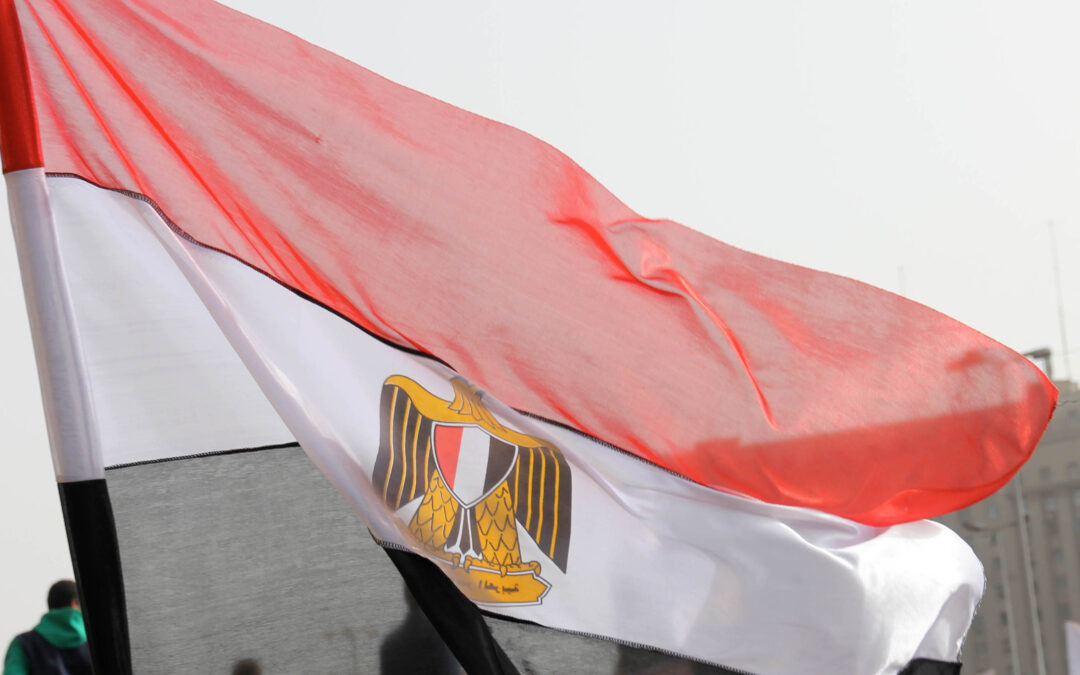
Jan 14, 2019 | News
Today the ICJ condemned the conviction of prominent Egyptian political activist Ahmed Douma and called for his immediate removal from solitary confinement and release from prison.
Ahmed Douma, political activist and founding member of the now banned 6 April pro-democracy movement established in 2008, was convicted by the South Cairo Criminal Court on Wednesday 9 January 2019.
The conviction, resulting in a sentence of 15 years in a maximum security prison and a six million Egyptian pounds (US$335,000) fine, followed a re-trial on charges under the Penal Code and Law No. 10 of 1914 on Illegal Assembly including using force and violence against military and police officers, disrupting traffic, participating in an illegal assembly for such purposes, burning the Egyptian Scientific Institute, vandalizing public property, and possessing Molotov Cocktails and rocks to vandalize public property.
The charges relate to his involvement in a three-week sit-in protest outside the Cairo Cabinet Offices in November and December 2011 against the Supreme Council of the Armed Forces’ decision to appoint Kamal Al Ganzouri as Prime Minister, and calling for a civilian government during the post-revolution transition period. The protest erupted in clashes between military forces and protestors on 16 December 2011, which lead to the death of 18 protestors by live ammunition, injury of more than 1900 others and property damage. Douma and 268 others were charged with all offences without distinction.
Ahmed Douma has been held in solitary confinement since late 2013 in connection with his conviction in another case.
Before handing down the sentence, Judge Mohamed Shereen Fahmy stated the country was “plagued by the intellectually defeated and the socially […] lost in the maze of life, seeking a position through which they can establish themselves as national symbols, liars, deceivers, and accomplices, […] who one would expect to be the homeland’s protectors, but in reality, they are its worst foes.”
“The harsh sentence is a clear message to all political activists that any political activity or dissent will not be tolerated under Egypt’s military dictatorship,” said Said Benarbia, Director of ICJ’s MENA Programme. “Judge Fahmy’s statement demonstrates he was never independent and impartial, but was implementing the political will of the al-Sisi led government. The Egyptian regime’s politicization of the judiciary means those with opposing views are unlikely to have a fair trial.”
On 22 December 2013, a Cairo Misdemeanor Court convicted Ahmed Douma in another case, along with two other political activists and founding members of the 6 April movement, Ahmed Maher and Mohamed Adel, for “illegally organizing a protest” under Law No. 107 of 2013 on the Right to Public Meetings, Processions and Peaceful Demonstrations. They were sentenced to three years’ imprisonment and fined 50,000 Egyptian pounds (US$7,239) each.
Since that conviction, Douma has been detained in solitary confinement, with minimal time outside his cell each day. Prolonged solitary confinement is prohibited under international law.
“The Egyptian Authorities are subjecting a political activist to severe ill-treatment in reprisal for his participation and his role in the pro-democracy uprisings of January 2011 and as a warning to others to take heed of what will happen should you dare to express your views. Ahmed Douma’s solitary confinement for more than five years is a breach of Egypt’s obligations under international law,” said Said Benarbia.
Contact:
Said Benarbia, Director of the ICJ Middle East and North Africa Programme, t: +41-22-979-3817; e: said.benarbia(a)icj.org
Egypt-Release Ahmed Douma-News-Web Story-2019-ENG Full press release (English, PDF)
Egypt-Release Ahmed Douma-News-Web Story-2019-ARA Full press release (Arabic, PDF)









